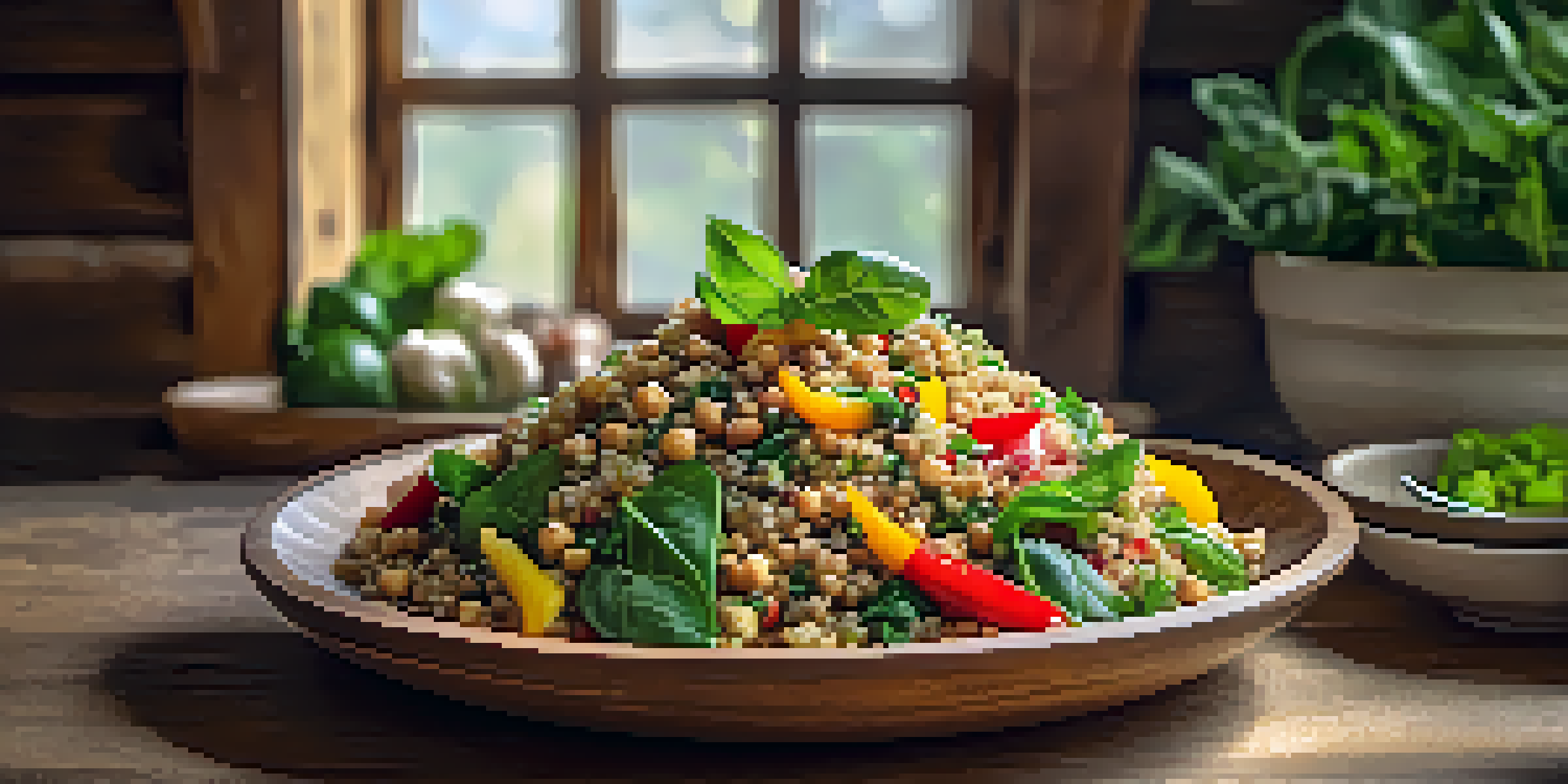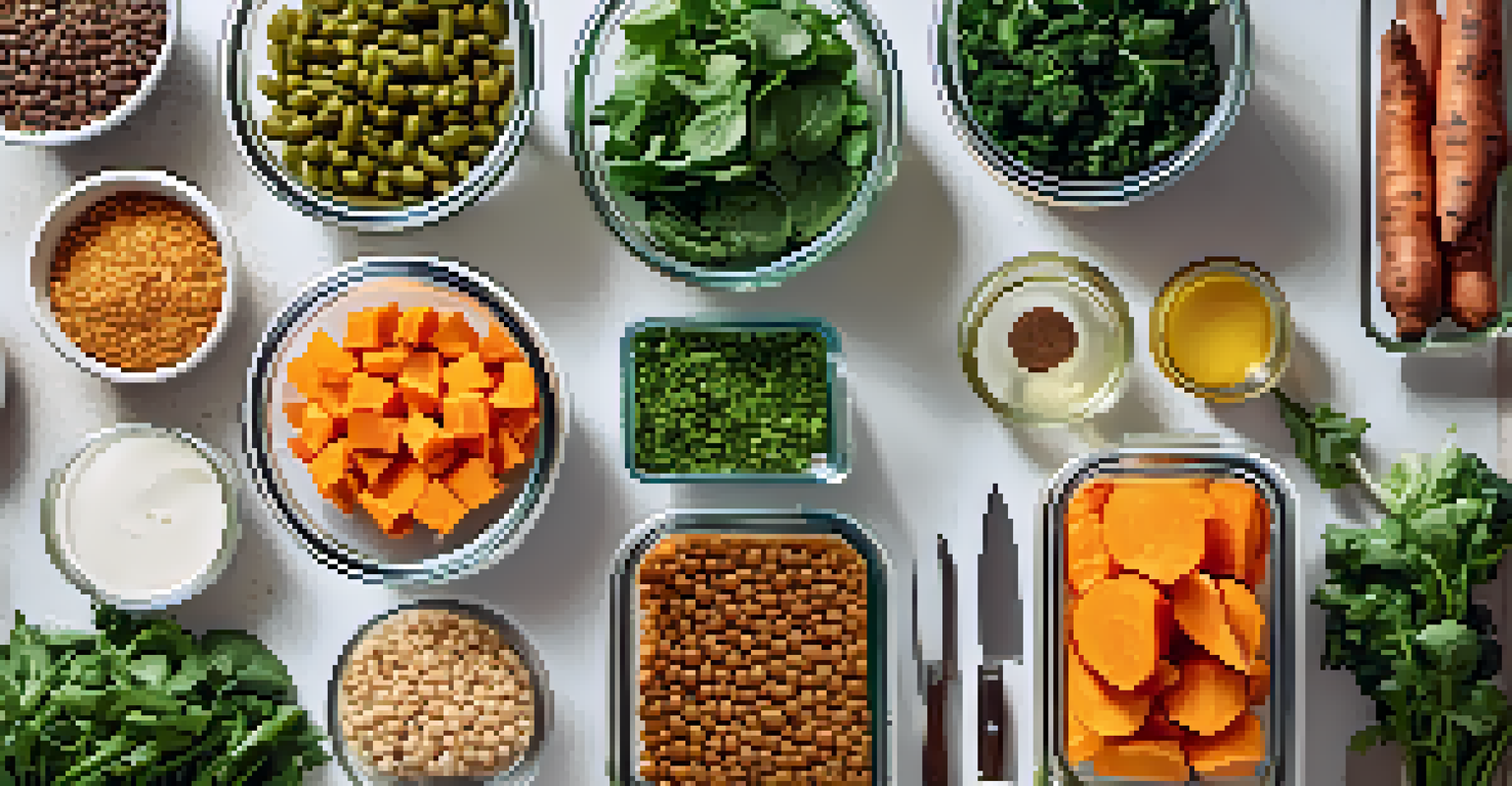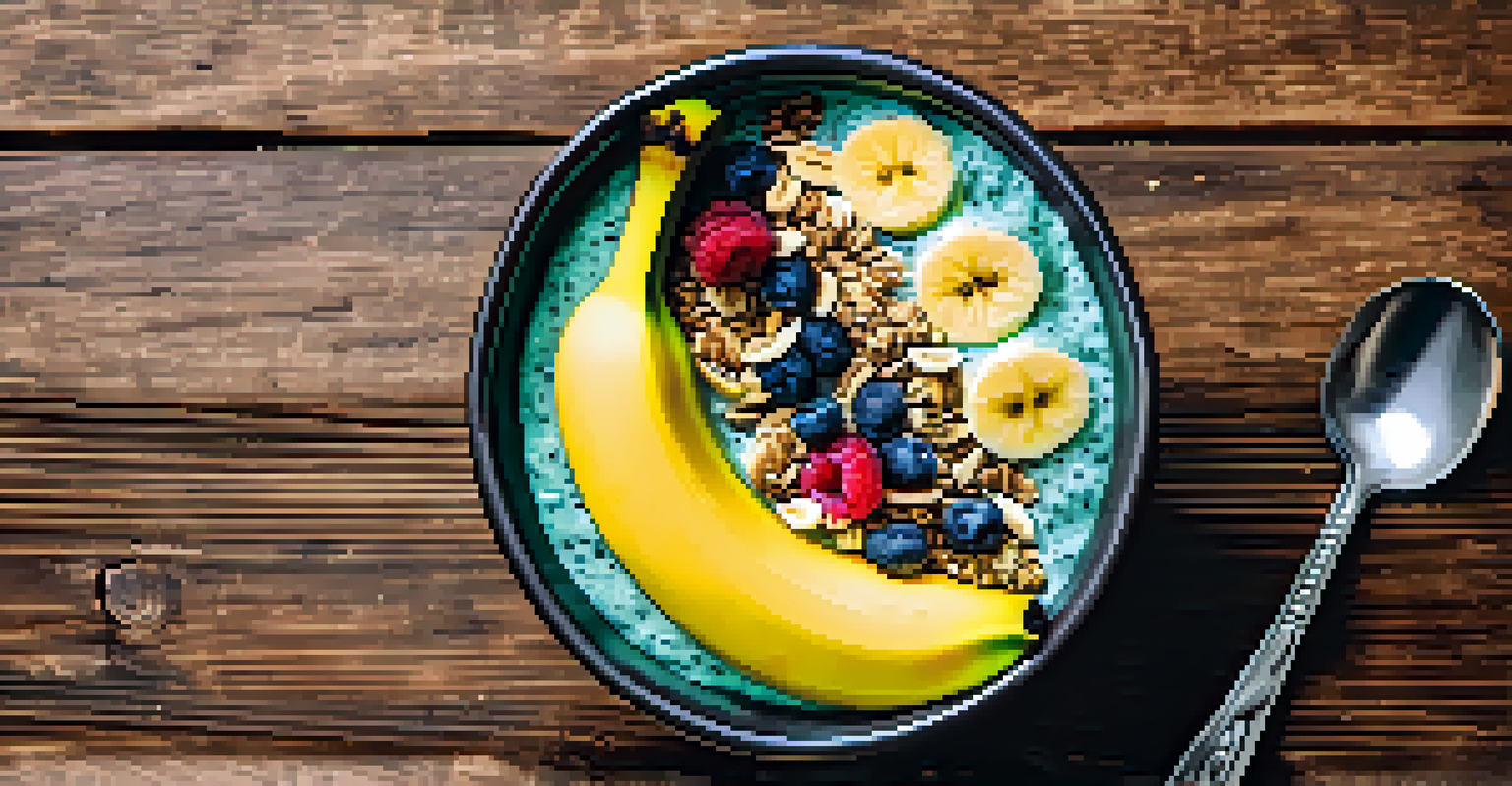Plant-Based Diets: A Guide for Martial Artists' Nutrition

Understanding Plant-Based Diets for Martial Artists
A plant-based diet primarily focuses on foods derived from plants, including fruits, vegetables, grains, nuts, and seeds. For martial artists, this dietary approach can provide the necessary nutrients for optimal performance and recovery. It's not just about eliminating meat; it's about embracing a variety of foods that fuel the body effectively.
Let food be thy medicine and medicine be thy food.
Adopting a plant-based diet doesn't mean compromising on protein, a key component for muscle repair and growth. Many plant sources, like lentils, chickpeas, and quinoa, are rich in protein and can be easily incorporated into meals. Understanding the right combinations of these foods can help martial artists maintain their strength and agility without animal products.
Moreover, plant-based diets are often rich in antioxidants and anti-inflammatory compounds, which are crucial for recovery after intense training. Foods like berries, leafy greens, and nuts can help reduce inflammation and facilitate quicker healing, allowing martial artists to train harder and longer.
Key Nutrients in a Plant-Based Diet
When following a plant-based diet, it's essential to focus on key nutrients that support athletic performance. Important nutrients include protein, iron, calcium, omega-3 fatty acids, and vitamin B12, which are often less abundant in plant foods. Ensuring a balanced intake of these nutrients can help martial artists avoid deficiencies and enhance their training.

For instance, iron is crucial for energy production and muscle function, and while it's found in plant foods like spinach and lentils, it’s less easily absorbed than iron from meat. Consuming vitamin C-rich foods alongside iron sources can improve absorption. So, adding a squeeze of lemon to a spinach salad can make a significant difference!
Nourishing Performance with Plants
A plant-based diet provides essential nutrients like protein, iron, and omega-3s that support martial artists' performance and recovery.
Additionally, omega-3 fatty acids, typically found in fish, can be sourced from flaxseeds, chia seeds, and walnuts. These healthy fats are essential for reducing exercise-induced inflammation, which is especially beneficial for martial artists who engage in high-impact training.
Meal Planning for Optimal Performance
Effective meal planning is vital for martial artists on a plant-based diet. Preparing meals in advance ensures that you have nutritious options readily available, helping you maintain energy levels and performance. It’s about striking a balance between convenience and nutritional value.
You are what you eat, so don't be fast, cheap, easy, or fake.
Incorporating a variety of whole foods in your meal prep can keep things interesting and satisfying. Think of colorful bowls filled with grains, legumes, and an assortment of vegetables. This not only looks appealing but also ensures you’re getting a wide range of nutrients.
Don’t forget to include snacks that can help fuel your training sessions. Energy-dense snacks like nut butter on whole grain toast or a smoothie with spinach and banana can provide the necessary energy boost before or after workouts.
Hydration: An Often Overlooked Aspect
Hydration is crucial for everyone, but it’s particularly important for martial artists who need to stay agile and focused. A plant-based diet may naturally lead to increased water intake, thanks to the high water content in fruits and vegetables. However, it’s still essential to consciously manage hydration levels.
Adequate hydration aids in digestion and nutrient absorption, helping the body utilize the energy from your meals effectively. Aim to drink water consistently throughout the day, and consider incorporating hydrating foods like cucumbers, oranges, and melons for added benefits.
Meal Planning for Success
Effective meal planning ensures martial artists maintain energy levels and nutritional balance, incorporating a variety of whole foods.
Post-training, consider electrolyte-rich drinks or coconut water to replenish lost minerals. Staying hydrated can significantly improve recovery times and overall performance, making it a key component of any athlete's regimen.
Benefits of Plant-Based Diets for Recovery
For martial artists, recovery is as important as the training itself. A plant-based diet can enhance recovery thanks to its rich content of vitamins, minerals, and antioxidants. These nutrients help repair muscles and reduce fatigue, allowing athletes to return to training faster.
For example, foods like sweet potatoes, which are high in complex carbohydrates, can replenish glycogen stores after intense workouts. Pairing them with protein sources like black beans or tofu provides a complete recovery meal that supports muscle repair.
Furthermore, incorporating anti-inflammatory foods like turmeric and ginger can aid in reducing muscle soreness. These natural ingredients can easily be added to smoothies, soups, or stir-fries, making recovery not just effective but also enjoyable.
Challenges and Solutions of Plant-Based Eating
Transitioning to a plant-based diet can come with its challenges, particularly for martial artists accustomed to traditional meal plans. Concerns about protein intake, meal variety, and proper nutrition are common. However, with a little planning and education, these challenges can be easily managed.
One solution is to experiment with various plant-based protein sources to find what works best for you. Incorporating a mix of legumes, nuts, seeds, and whole grains can help meet your protein needs while keeping meals exciting. Trying new recipes or cooking techniques can also make the transition feel less daunting.
Hydration is Key for Recovery
Staying hydrated is crucial for martial artists, as it aids digestion, nutrient absorption, and enhances recovery after intense training.
Another challenge is ensuring that you’re meeting all your nutritional needs. Regularly consulting with a nutritionist or using food tracking apps can provide insights into your nutrient intake, helping you adjust your diet as necessary.
Incorporating Plant-Based Meals into Training Routines
Integrating plant-based meals into your training routine can be seamless with a bit of creativity. Start by making small changes, such as swapping out meat for plant proteins in your favorite dishes. This gradual approach can help you adapt without feeling overwhelmed.
Consider planning themed meal nights where you explore different cuisines from around the world that highlight plant-based ingredients. For example, a Mexican night with black bean tacos or an Italian night with lentil bolognese allows you to enjoy flavorful meals while sticking to your dietary goals.

Also, be mindful of your meal timing in relation to training. Eating a balanced meal a few hours before a workout can provide energy, while a post-workout snack rich in carbohydrates and protein will aid recovery. Listening to your body and adjusting your meals accordingly is key.